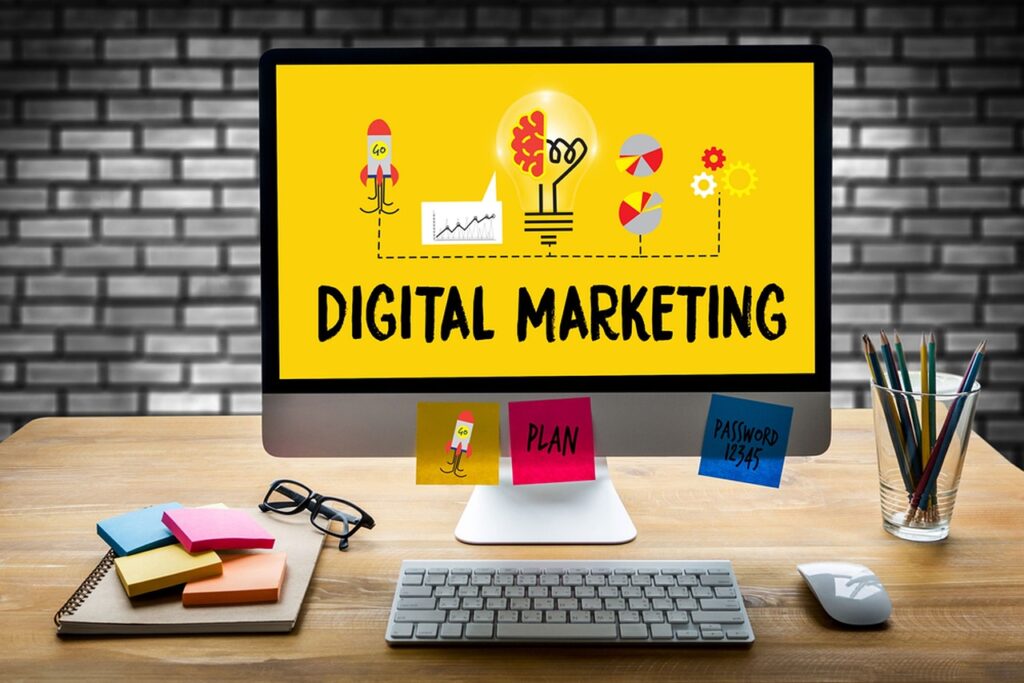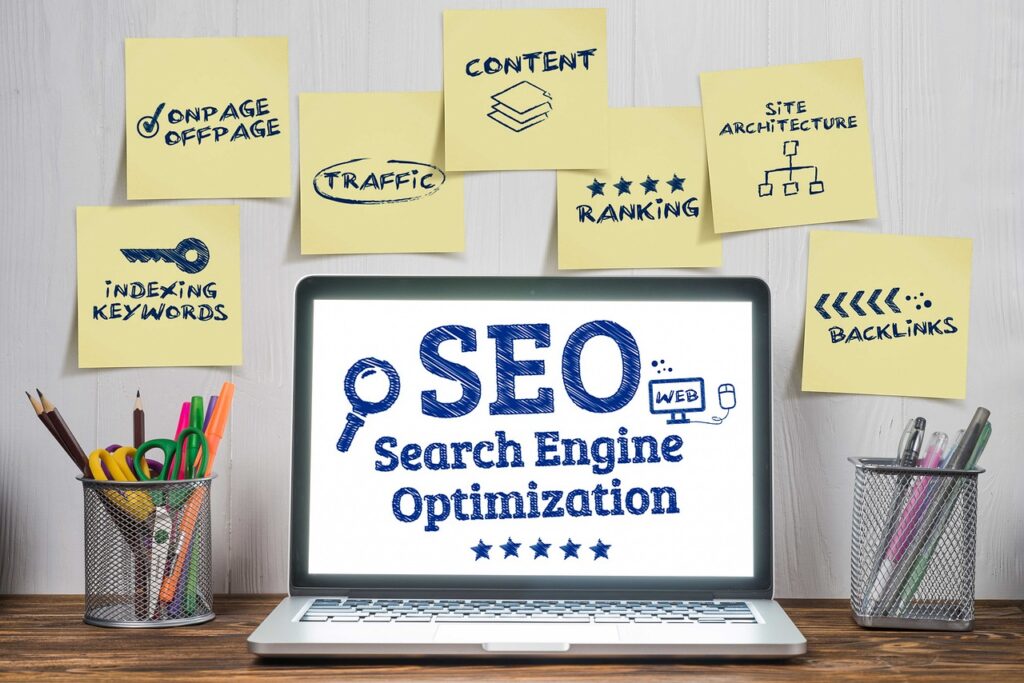Why Digital Marketing Is Important For Business
Why Digital Marketing Is Important For Business
In March 2020, our lives underwent a profound transformation. The sudden surge in Coronavirus cases led to a global lockdown, bringing the world to a halt. Shops, factories, and offices closed, resulting in a halt in people’s income. Despite these challenges, online deliveries continued, and online businesses thrived, while many offline businesses had to shut down.
Previously I was an area manager in a pharmaceutical company, but due to a promotion to regional manager covering Orissa, Kolkata, and the North East, I resigned. After six months at home, I decided to explore online opportunities. After extensive research, I learned digital marketing skills to keep myself occupied.
During my digital marketing journey, I identified an opportunity to democratize digital marketing knowledge. In today’s digital age, digital marketing has become a crucial life skill. This realization led to the establishment of Digital Hazarika Academy, with a mission to empower at least 100,000 individuals with digital marketing knowledge to overcome life’s challenges.
Digital Hazarika Academy serves as an educational institution, where I impart the latest digital marketing strategies and tools. It also fosters a connected community, or tribe, where students can collaborate towards achieving our shared mission. The academy emphasizes the importance of giving back, teaching students why they should allocate at least 10% of their earnings to those in need.
Through Digital Hazarika Academy, my aim is to reach every common person and equip them with the essential digital marketing techniques and tools needed in the era of digitalization. So far, I have impacted the lives of over 2,000 students with the academy’s motto: Learn, Implement, Earn.
With my guide, ‘Why Digital Marketing Is Important For Business’, I take the next step in realizing my mission to reach 100,000 people. I warmly welcome all readers to join me in making this mission a success.

The Internet’s development and effects
The evolution of the internet and its impact on human life reflect the ongoing quest for simplification. In the present day, a plethora of tools are available to streamline daily routines, with the internet standing out as the most significant innovation, absent just two to three decades ago. Its popularity, even in a large country like India, took years to grow, surprising those who had never envisioned it becoming a central aspect of personal life.
The advent of computers in the 1990s, initially utilized by major corporations, gradually became an essential tool for individuals, simplifying daily tasks. The combination of the internet and computers has given rise to a digital revolution, earning this era the moniker of the digital age. According to Statista, the number of internet users in India has multiplied ten to eleven times from 9 crores in 2010 to nearing 100 crores.
Globally, over 500 crores out of the world’s 800-crore population are internet users, spending an average of 7 hours online each day. This digital revolution has interconnected people, simplified lives, and generated numerous employment opportunities. Companies of all sizes are digitizing operations, seeking individuals well-versed in digital technology to contribute to their growth.
Learning the proper use of the internet and gaining digital knowledge opens doors to lucrative opportunities and aids companies in their digital transformation. The internet has also facilitated employment for individuals unable to leave their homes, such as housewives, the elderly, and people with disabilities.
The internet and computers not only offer promising careers but also make business expansion accessible. Entrepreneurs can quickly reach potential customers through online platforms like Google, eliminating the need to wait for customers to come to them.
However, there are businesses that have struggled due to a lack of full digitization, unable to reach online customers and ultimately closing down. The crucial question emerges: Is adapting to digitization difficult? Is digital technology so costly that only large companies can leverage it?
The widespread availability of the internet in households makes implementing digital technology easier than ever. The choice between free and paid digital promotion strategies rests entirely on individual preferences. Digital marketing technology allows individuals to create a digital presence and brand themselves or their businesses.
Whether you are a businessman aiming to reach customers, a housewife looking to earn from home, a student aspiring for a successful career, or a service provider eager to sell services, the internet and computer offer viable solutions.
To leverage the potential of the internet effectively, it is essential to create a digital ecosystem that incorporates the latest digital techniques of the digital age. This comprehensive approach, referred to as the Digital Ecosystem, plays a pivotal role in achieving various goals, including marketing goals for businessmen, career goals for students, income goals for homemakers, and additional income goals for salaried employees. Understanding key digital components is crucial, and the following chapters of this blog will delve into these important concepts.

What Is The Meaning Of Marketing
Marketing is a term commonly heard, but its true meaning may elude many. When I inquire about its definition among new members of my Digital Azadi community, I receive various responses. Some equate it with selling, others with advertising, creating a customer base, or simply promoting a product. While these aspects are integral to marketing, labeling it solely as selling, advertising, or promotion would be inadequate.
Understanding the actual meaning of marketing is crucial for advancing in digital transformation and establishing a digital ecosystem. According to Hubspot, marketing comprises actions through which a company attracts its target audience to its products and services. These actions involve showcasing a product to the right customer at the right time and place. The ultimate goal is to strategically implement these actions to grow the business.
For a company to thrive as Digital Marketing Is Important For Business,
it needs to retain existing customers, encourage continued purchases, and attract new customers. Regardless of whether a company deals in physical products, digital products, or services, the overarching aim is to sell. Various marketing strategies are employed to achieve this goal, encompassing the creation of a website, content planning and marketing, email marketing, social media utilization, search engine optimization, paid ad campaigns, influencer marketing, and other digital platforms.
These strategies can be categorized into organic and inorganic marketing activities. Organic methods involve reaching potential customers without monetary investment, relying on time and effort. In contrast, inorganic methods entail reaching potential customers quickly through financial investment.
Organic strategies include creating and optimizing a website, content marketing, and crafting content for social media platforms. These approaches prioritize valuable content creation and distribution. On the other hand, effective inorganic marketing involves running ads on platforms like Google and YouTube, conducting campaigns on social media platforms such as Instagram and Facebook, and leveraging influencer marketing.
Regardless of the chosen strategy, it is crucial to keep the target audience in mind and ensure that they connect with the conveyed message. Once the audience comprehends the message, pitching a product or service becomes more manageable.
However, despite knowledge of these marketing techniques, people often neglect certain areas, leading to suboptimal results. It is essential to address these overlooked areas for a comprehensive and effective marketing strategy.

Areas in Marketing Often Neglected:
Existing Customer:
- Many new organizations concentrate solely on acquiring new customers to increase revenue and foster growth.
- While expanding the customer base is important, neglecting existing customers can be detrimental.
- Interaction with and support for existing customers are vital for enhancing a company’s credibility, authority, and trust.
- Addressing queries, providing solutions, and offering good support contribute to positive reviews and ratings, strengthening the overall marketing strategy.
Website Optimization:
- A website is a crucial digital asset and the primary interface for potential customers to understand a business.
- Mere creation of a website is insufficient; optimization is key for attracting customers.
- Optimization involves structuring content, strategy, and design to enhance both user experience and search engine visibility.
- Key considerations during website optimization include identifying the target audience, determining the number of pages needed, choosing an effective framework, ensuring proper linking, selecting relevant keywords, and optimizing for mobile users and voice search.
- An optimized website improves user experience, increasing the likelihood of converting visitors into customers. It also positively impacts search engine rankings, leading to higher visibility and attracting interested traffic.
- With the majority of the world’s population using mobile phones, having a mobile-friendly website is crucial for reaching a broader audience.
- Voice search optimization is an emerging trend, with an increasing number of people preferring spoken queries. Companies that adapt to voice search trends gain a competitive edge, while those lagging behind may miss opportunities for customer acquisition.
Local SEO:
-
- While targeting a broader audience is a common business strategy, the significance of establishing a local presence should not be overlooked.
- Local presence contributes to recognition in specific areas, increasing influence, and facilitating accessibility for local residents.
- Local SEO involves creating a Google My Business account with detailed information such as shop name, address, contact number, and operating hours.
- Using relevant keywords in the description and tags, such as “Best Saree Shop in Saswad” or “Saree Shop Near Me,” optimizes the Google My Business profile.
- Utilizing local listing platforms and incorporating shop details enhances the perception of local presence for search engines.
- Well-optimized websites, Google My Business details, and local listings collectively improve visibility in local searches, ensuring that the business appears prominently when users search for related keywords.
- Reviews and ratings on the Google My Business profile play a crucial role in influencing potential customers, emphasizing the importance of maintaining a positive online reputation.
What Is The Meaning Of Digital Marketing?
Digital Marketing refers to the technique used to reach or engage customers and promote products and services through various digital channels, including the internet, mobile devices, computers, social media, and search engines.
The term “digital marketing” originated in the 1990s, coinciding with the rise of the internet and increased computer usage. As awareness of the internet grew, the digital marketing industry emerged. By 2022, this industry had become immensely popular, with every new business prioritizing digital marketing for growth.
In India, the value of the digital marketing industry was Rs 6200 crore in 2016, and it has experienced remarkable growth, reaching Rs 21,300 crore in 2021, reflecting a 343% increase.
Key features of digital marketing include affordability and the ability to reach global audiences from a single location. It allows businesses to deliver products and services worldwide while providing a personalized experience by understanding customer needs and behaviors.
Digital Marketing Benefits and Related Stats:
- Affordability and Global Reach:
-
-
- Digital marketing enables businesses to reach a global audience from a centralized location, making it a cost-effective and efficient approach.
-
- Rapid Industry Growth:
-
-
- The digital marketing industry in India experienced substantial growth, with a 343% increase in value from Rs 6200 crore in 2016 to Rs 21,300 crore in 2021.
-
- Personalized Customer Experience:
-
-
- By understanding customer needs and behaviors, businesses can provide personalized experiences, enhancing customer satisfaction and engagement.
-
- Facilitation of Daily Activities:
-
-
- Digital marketing has played a crucial role in bringing various services to people’s homes, such as bill payments, phone recharges, ticket bookings, and the delivery of groceries and medicines.
-
- Popularity and Widespread Usage:
-
- In the era of digitization, people of all age groups use mobile devices and the internet, making digital marketing a highly relevant and popular strategy.
Digital marketing has become an integral part of daily life, influencing how businesses connect with customers and how individuals access products and services. Its benefits extend to affordability, global reach, personalized experiences, and the facilitation of various daily activities, contributing to its widespread adoption and success in the modern era.
Precise Targeting:
- Customer satisfaction is crucial for business success, and online marketing facilitates precise targeting based on factors such as customer problems, interests, and location.
- Strategies like Content Marketing, Email Marketing, SEO, and Social Media Marketing enhance awareness and increase reach.
- Content Marketing is particularly effective in the current era of increased content consumption.
- Increases Online Presence:
- In the digital age, a strong online presence is essential. Before making purchasing decisions, individuals conduct online research.
- Digital marketing enables businesses to appear in online searches related to their products or services, reaching potential customers actively seeking relevant information.
- Establishing authority and trust through digital presence is crucial for influencing buying decisions.
- Helps In Personalized Marketing:
- Digital marketing contributes to personalized marketing, offering a tailored experience to the target audience.
- According to Forbes, 80% of consumers prefer brands providing a personalized experience.
- Analyzing audience behavior allows businesses to deliver messages at the right time, creating a more personalized and engaging marketing approach.
- Easy Tracking Of Customer Journey:
- Digital marketing enables the easy tracking of a customer’s journey, from initial research to final decision.
- Understanding customer pain points, interests, and behaviors allows businesses to impact buying decisions significantly.
- Online marketing facilitates building trust through strategic interactions and targeted messaging.
- Cost Effective With No Geographical Restriction:
- Digital marketing is cost-effective, requiring only a good internet connection and a computer.
- It eliminates the need for an elaborate office setup or a large team in the initial stages.
- The affordability and cost-effectiveness make it an accessible marketing strategy with no geographical restrictions.
- Automation in digital marketing further enhances efficiency, saving time, improving lead generation, and enhancing customer targeting.
While digital marketing offers numerous benefits, traditional marketing methods still hold significance. The choice between digital and traditional marketing depends on factors such as business model, goals, and budget. Traditional marketing, including newspaper ads, pamphlets, posters, and banners, can still play a crucial role based on the specific needs and circumstances of a business. Both digital and traditional marketing methods can coexist and be integrated to create a comprehensive and effective marketing strategy.

Digital Marketing vs Traditional Marketing:
Traditional Marketing:
- Definition: Traditional marketing involves promotion, advertisement, selling, and creating awareness through broadcast, print, direct mail, billboards, banners, posters, radio, TV, newspaper, etc.
- Longevity: This strategy has been in use for centuries and has proven to be profitable for many businesses.
- Suitable for: Typically used for generic products and can provide good returns.
- Reach: Unlimited reach, as ads in TV, radio, newspapers, or magazines can potentially reach every household in the country.
- Targeting: Precise targeting is not possible; the advertisement is seen by a broad audience.
- Cost: Considered a costly marketing strategy, involving significant expenses for advertisements.
- Flexibility: Changing or modifying ads is a time-consuming process, requiring extensive planning.
- Communication: One-way communication; businesses cannot directly engage with the audience or provide a personalized experience.
- Tracking: Difficult to track the reach and response of ads.
Digital Marketing:
- Definition: Digital marketing involves reaching customers through the internet, computers, mobile devices, search engines, email, and other digital mediums.
- Longevity: Emerged in the 1990s but has rapidly grown, becoming a significant industry providing new opportunities.
- Suitable for: Adaptable to various products and services, offering control and flexibility.
- Reach: Limited reach compared to traditional marketing; relies on internet penetration.
- Targeting: Allows for precise targeting, reaching only interested individuals through digital mediums.
- Cost: Generally more cost-effective, with the ability to target specific audiences, reducing customer acquisition costs.
- Flexibility: Offers greater control; businesses can modify ads, target specific audiences, and track results in real-time.
- Communication: Two-way communication; businesses can engage directly, understand customer problems, and provide a personalized experience.
- Tracking: Comprehensive tracking of marketing efforts, enabling businesses to measure the effectiveness of campaigns.
Conclusion:—–
Both traditional and digital marketing have their merits, and the choice between them depends on the specific needs, goals, and budget of a business. While traditional marketing has a broader reach, digital marketing provides more control, precision targeting, and real-time tracking. Many businesses find success by integrating both strategies for a comprehensive marketing approach.
